
Introduction
On our test bench, today is the EVGA GeForce RTX 3070 Ti FTW3 ULTRA GAMING (08G-P5-3797-KL) video card. Among the three RTX 3070 cards that EVGA offers, the FTW3 ULTRA GAMING sports the fastest factory overclock that EVGA currently offers. It is equipped with EVGA’s iCX3 cooling solution which includes three fans.
We would like to give mad props to Skillz in the forums for loaning us this card to review!
Like all other GeForce RTX 30 Series GPUs, this card is impossible to find in the retail environment but has an MSRP of $829.99 direct from EVGA at the time of publication. To get the card from EVGA, jump into their notification queue and await your turn (at least, once the queue reopens for new registrations). We’ve seen the card pop up from time to time at NewEgg and BestBuy but is still as hard to get as any other RTX 30 Series card.
This represents a premium over the GeForce RTX 3070 Ti Founders Edition card. We will compare it to the AMD Radeon RX 6800 which weighs in at an MSRP of $579 making the two GPUs the appropriate match (keep in mind that the Founders Edition is targeted at the $599 price point).
The GeForce RTX 3070 Ti GPU is based on the Samsung 8nm manufacturing process and Ampere architecture. It has 6,144 CUDA Cores, 192 Tensor Cores (3rd gen), 48 RT Cores (2nd gen), 192 Texture Units, and 96 ROPs. It has a GPU Boost Clock of 1770MHz. It has 8GB of GDDR6X memory at 19GHz on a 256-bit bus providing 608GB/s of memory bandwidth. Total board power is 290W.
EVGA GeForce RTX 3070 Ti FTW3 ULTRA GAMING (08G-P5-3797-KL)

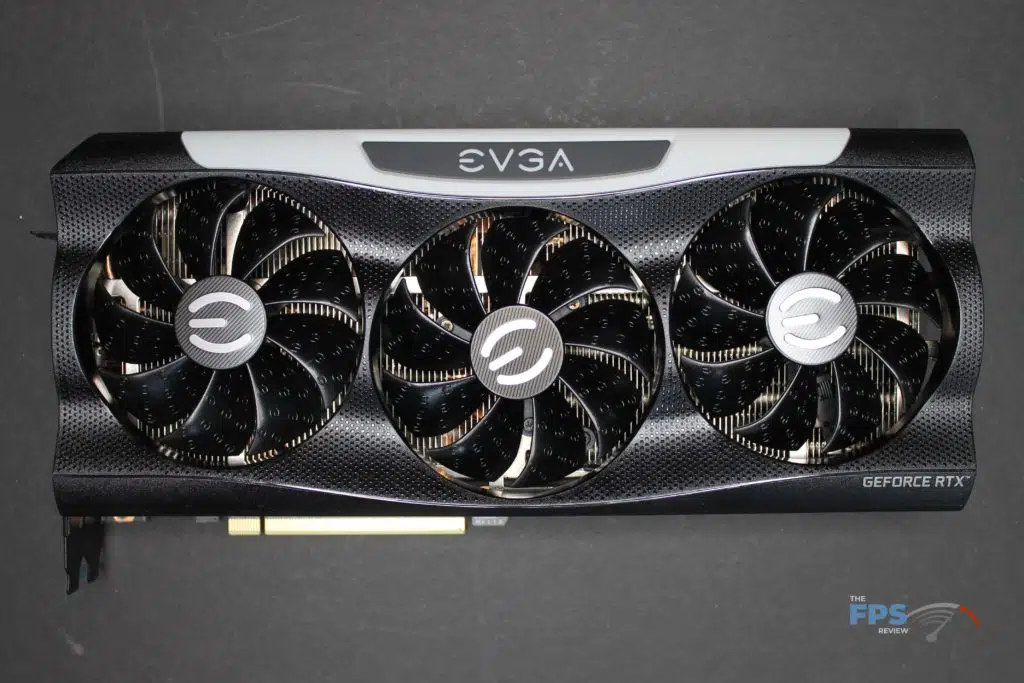
The EVGA GeForce RTX 3070 Ti FTW3 ULTRA GAMING comes in a regulation-size video card box that identifies it as an RTX 3070 Ti FTW3 ULTRA model from EVGA. Once we cracked open the box, we found a black-clad GPU sporting three fans and a solid metal backplate.
Specifications
EVGA has given the GeForce RTX 3070 Ti FTW3 ULTRA GAMING a factory overclock of 90MHz on the boost clock, bringing it from the stock 1770MHz up to 1860MHz. Keep in mind that the boost clock is a target based upon power, workload, and temperature and that value will typically be exceeded via the card’s boosting algorithm NVIDIA GPU Boost. It also sports 8GB of 19GHz GDDR6X memory that is equal in speed to the reference specifications. EVGA offers a 290W TGP on the card.
From a size perspective, it’s a large size card. While it is long, it’s not tall so your case doesn’t have to grow two ways to make room for it. Specifically, it is 11.8 inches long, 5.38 inches tall and 2.75 slots wide. For additional comparison, the GeForce RTX 3070 Ti Founders edition’s length is 10.5 inches long and 4.4 inches tall, so the EVGA video card is 1.5 inches longer and 1 inch taller.
EVGA iCX3 Cooling
EVGA is utilizing its iCX3 cooling setup that consists of 3 HDB 2.0 noise motor fans with fan blades that have raised “E”s on them to reduce noise. The fans feature an asynchronous fan mode and will switch off when temperatures are under 55 degrees Celsius. The PCB features cutouts (along with the backplate having cutouts) to improve airflow and reduce exhaust recovery. EVGA claims a 5.1% improvement over the iCX2 cooling system while being 9.7% quieter.
Pictures and Information
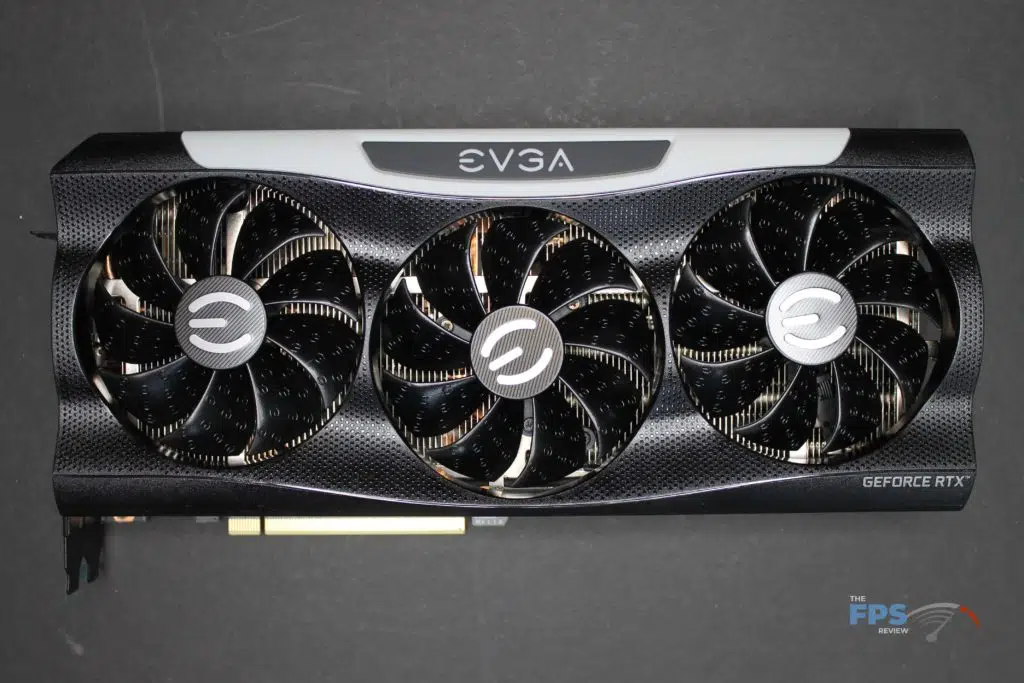
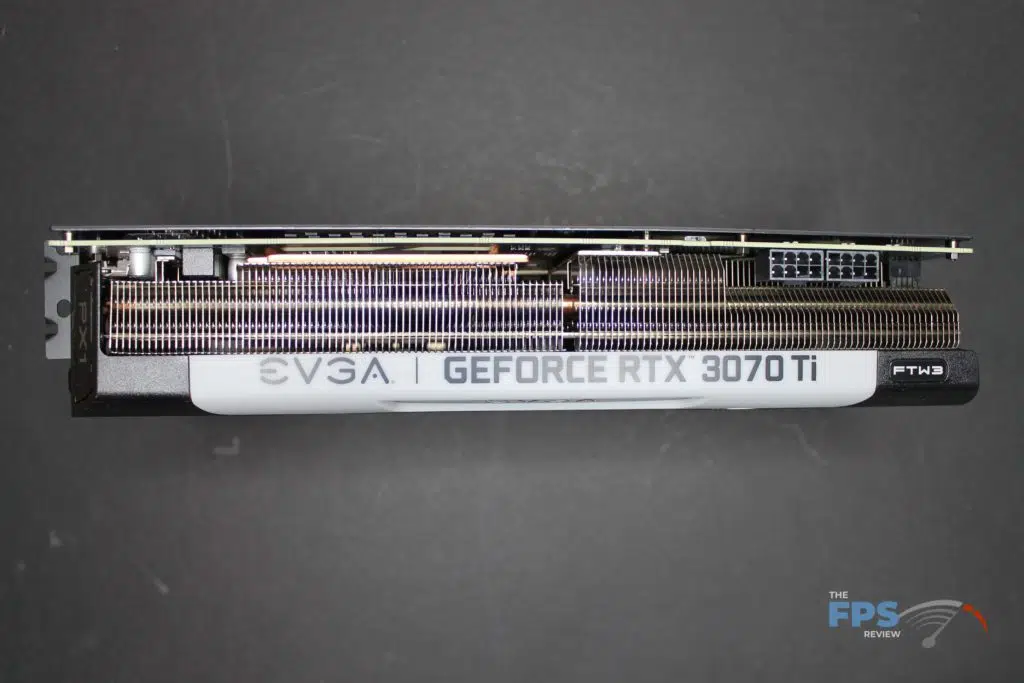
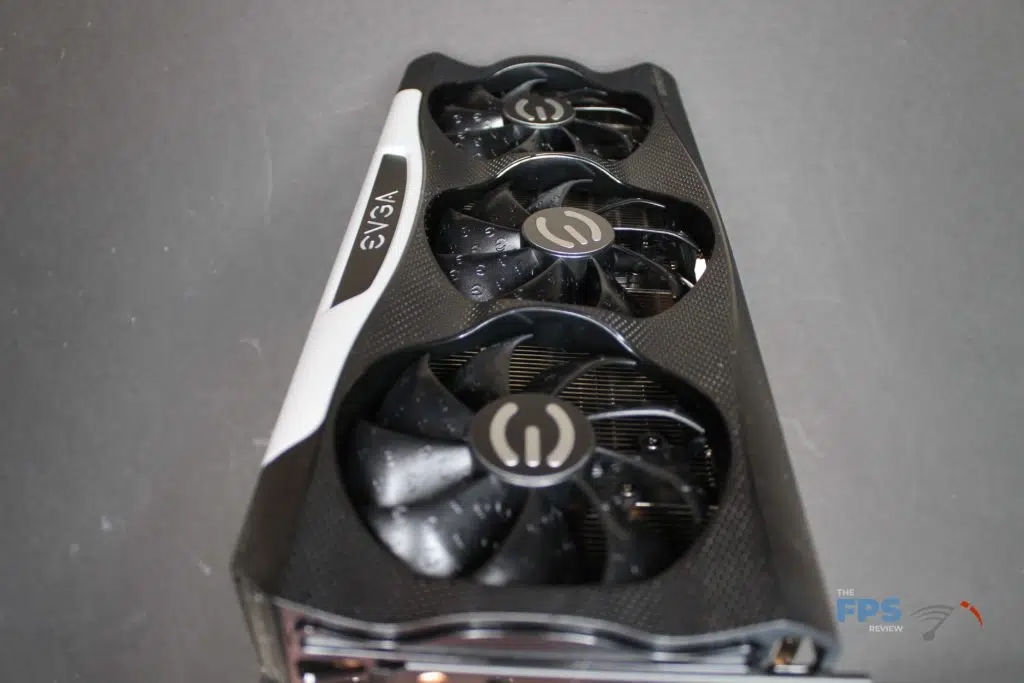
The front of the card features three HDB 2.0 and white trim along the top that lights up with RGB goodness. It’s a full two and three-quarters PCI-e slots wide and sports three Display Port 1.4a connections and one HDMI 2.0 connection.
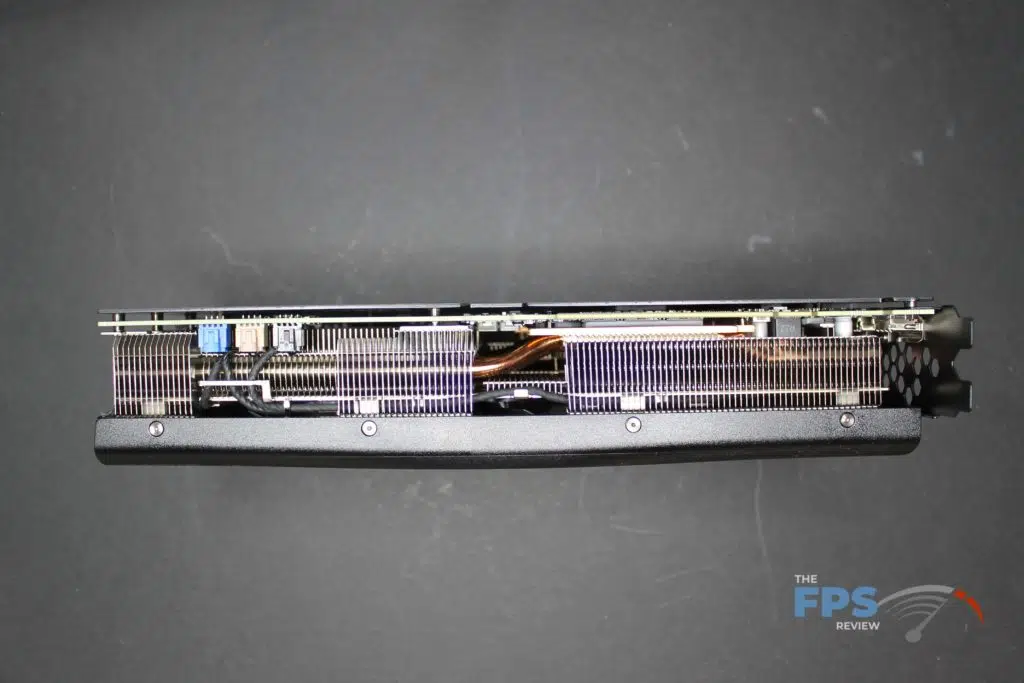
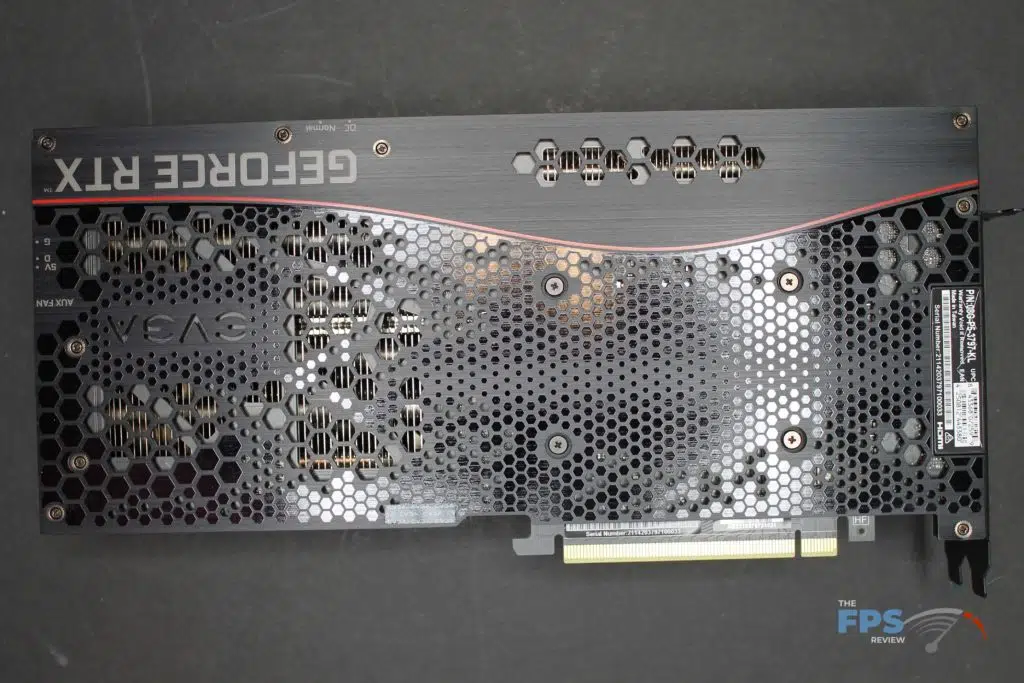
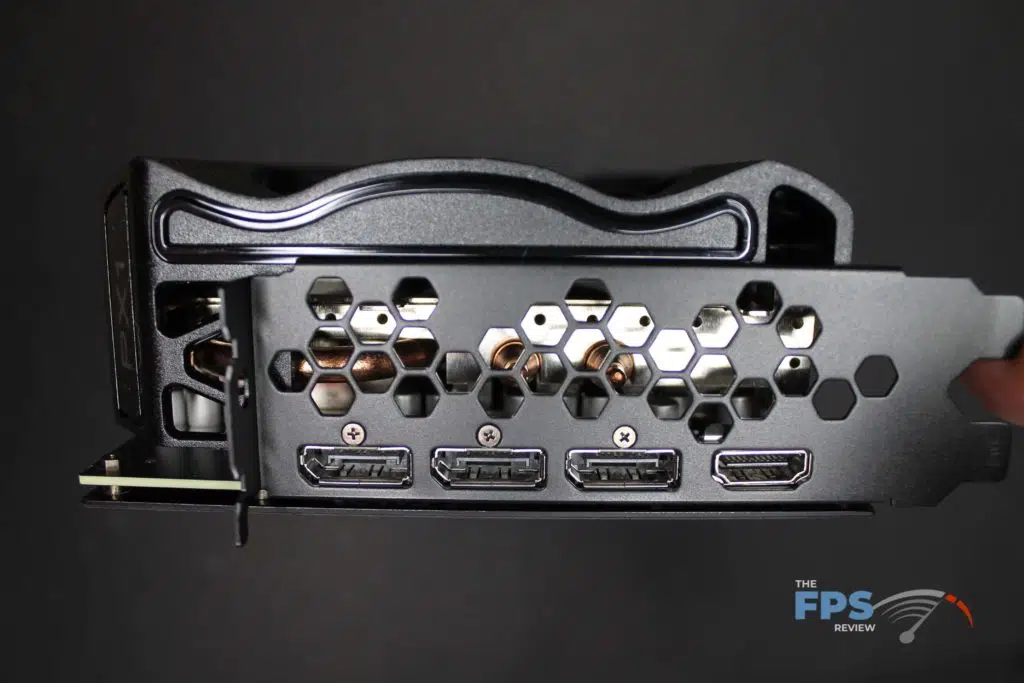
The EVGA GeForce RTX 3070 Ti FTW3 ULTRA GAMING is equipped with a backplate to help further the distribution of heat.
The video card requires two 8-pin PCI-Express power connectors. EVGA recommends a 750W Power Supply.
